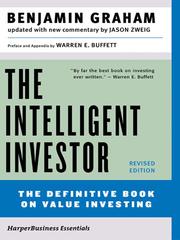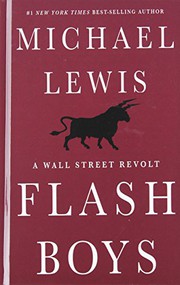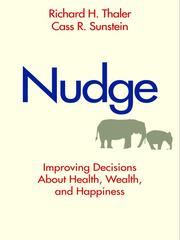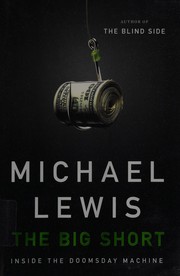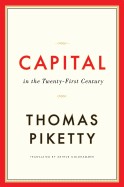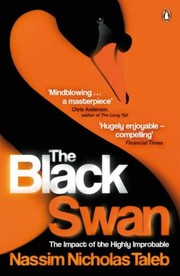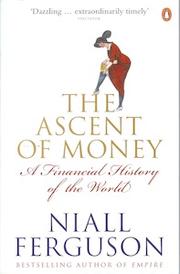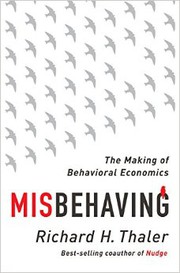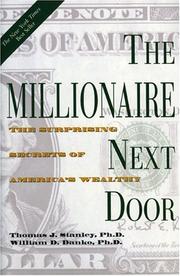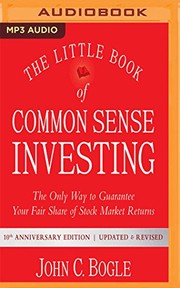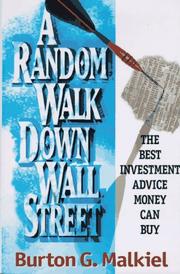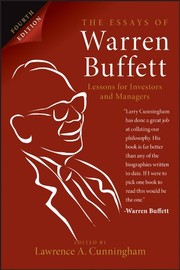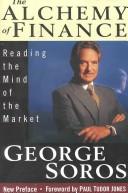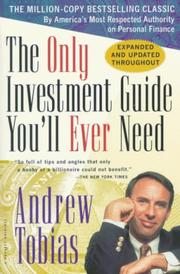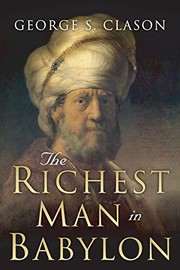Looking to gain a deeper understanding of finance? Dive into the world of money management, investments, and financial literacy with these 20 best books about finance. Whether you’re a seasoned investor or just starting out, these books on finance offer valuable insights, practical tips, and expert advice to help you navigate the complex world of money. From personal finance to corporate finance, these books cover a wide range of topics and are essential reads for anyone looking to improve their financial knowledge.
Contents
- 1 20 Best Books About Finance
- 2 The Intelligent Investor
- 3 Thinking, Fast and Slow
- 4 Flash Boys
- 5 Nudge: Improving Decisions About Health, Wealth, and Happiness
- 6 The Big Short
- 7 Freakonomics: A Rogue Economist Explores the Hidden Side of Everything
- 8 Capital in the Twenty-First Century
- 9 The Black Swan: The Impact of the Highly Improbable
- 10 The Ascent of Money: A Financial History of the World
- 11 Misbehaving: The Making of Behavioral Economics
- 12 Liar’s Poker
- 13 The Millionaire Next Door
- 14 The Little Book of Common Sense Investing
- 15 The Warren Buffett Way
- 16 A Random Walk Down Wall Street
- 17 The Essays of Warren Buffett: Lessons for Corporate America
- 18 The Alchemy of Finance
- 19 The Four Pillars of Investing
- 20 The Only Investment Guide You’ll Ever Need
- 21 The Richest Man in Babylon
- 22 Conclusion
- 23
- 24 Unveiling the Best Renewable Energy Books in this 2024 Update
- 25 Books about Housing: 2024 Updated Guide to Essential Reading
- 26 Books on The Stock Market: Discover the Top 20 in our 2024 Updated List
20 Best Books About Finance
The Intelligent Investor
by Benjamin Graham
The Intelligent Investor by Benjamin Graham is a classic book on finance that offers timeless wisdom for investors. Graham, known as the father of value investing, provides practical advice on how to navigate the unpredictable world of investing. He emphasizes the importance of a disciplined and rational approach to investing, focusing on long-term strategies and avoiding speculative behavior. By using real-life examples and case studies, Graham teaches readers how to analyze stocks and bonds, manage risk, and develop a sound investment strategy. The book is a must-read for anyone looking to build wealth and achieve financial security through intelligent and informed decision-making. Whether you’re a seasoned investor or a beginner, this finance book will equip you with the knowledge and mindset needed to succeed in the market.
Thinking, Fast and Slow
by Daniel Kahneman
Thinking, Fast and Slow by Daniel Kahneman is a captivating exploration of the dual systems that drive the way we think. The book delves into the two systems of thought: the fast, intuitive and emotional system, and the slow, deliberate and logical system. Kahneman, a Nobel Prize-winning psychologist, provides insight into the cognitive biases and errors that influence our decision-making processes. With engaging anecdotes and thought-provoking experiments, he sheds light on the complexities of human reasoning and offers valuable lessons for understanding and improving our judgment. Whether you’re a psychologist, economist, or just curious about the intricacies of the human mind, this book is a must-read. It’s not just a book about finance, but it offers valuable insights for anyone looking to make better decisions in their personal and professional lives.
Flash Boys
by Michael Lewis
Flash Boys by Michael Lewis is a gripping book on finance that delves into the world of high-frequency trading on Wall Street. Lewis takes readers on a fascinating journey through the world of finance, uncovering the controversial practices of high-frequency traders and the impact they have on the market. The book follows the story of a group of Wall Street outsiders who uncover the rigged stock market and set out to reform it. Lewis’s compelling narrative and in-depth research shed light on the complexities of the financial world, making it an eye-opening and thought-provoking read for anyone interested in the inner workings of the stock market. Whether you’re a seasoned investor or just curious about the world of finance, this book about finance is sure to captivate and inform.
Nudge: Improving Decisions About Health, Wealth, and Happiness
by Richard H. Thaler and Cass R. Sunstein
Nudge: Improving Decisions About Health, Wealth, and Happiness is a groundbreaking book on behavioral economics and decision-making. Written by Richard H. Thaler and Cass R. Sunstein, the book explores the concept of ‘nudging’ – the idea that small changes in the way choices are presented can significantly influence decision-making. It delves into how individuals can be guided to make better choices about their health, wealth, and overall happiness. This finance book challenges the traditional economic theory and provides practical insights into how policymakers, businesses, and individuals can use behavioral science to improve decision-making. With its engaging and accessible style, Nudge offers a compelling argument for how small nudges can have a big impact on our financial well-being and overall quality of life.
The Big Short
by Michael Lewis
The Big Short by Michael Lewis is a gripping book about finance that delves into the events leading up to the 2008 financial crisis. Lewis follows a group of Wall Street outsiders who saw the housing bubble and subprime mortgage crisis coming and capitalized on it. Through their stories, the author paints a vivid picture of the greed, ignorance, and recklessness that brought the global economy to its knees. The book offers a fascinating look at the inner workings of the finance industry and the complexities of the mortgage-backed securities market. With its sharp wit and compelling narrative, The Big Short is a must-read for anyone interested in understanding the intricacies of the financial world and the people who saw the crisis coming when no one else did.
Freakonomics: A Rogue Economist Explores the Hidden Side of Everything
by Steven D. Levitt and Stephen J. Dubner
Freakonomics: A Rogue Economist Explores the Hidden Side of Everything is a captivating and thought-provoking book on economics. Authors Steven D. Levitt and Stephen J. Dubner delve into the hidden side of various social phenomena, using economic principles to uncover surprising and unconventional explanations. Through engaging storytelling and compelling analysis, the book challenges traditional assumptions and offers a fresh perspective on a wide range of topics. From crime rates to parenting techniques, Freakonomics explores the unexpected ways in which incentives and data can shape human behavior. This finance book is a must-read for anyone interested in understanding the hidden forces at play in our everyday lives, and it will leave readers with a new appreciation for the power of economic thinking in understanding the world around us.
Capital in the Twenty-First Century
by Thomas Piketty
Capital in the Twenty-First Century by Thomas Piketty is a groundbreaking book about wealth and inequality in the modern world. This influential finance book explores the historical patterns of income and wealth distribution, revealing the alarming concentration of capital in the hands of a few. Piketty’s extensive research and analysis provide a compelling argument for the need to address economic inequality through policies that promote greater financial transparency and fairness. By delving into the dynamics of capitalism and the accumulation of wealth, this book on finance offers valuable insights into the forces shaping our global economy. With its thought-provoking ideas and data-driven approach, Capital in the Twenty-First Century has sparked important discussions about the future of wealth and prosperity.
The Black Swan: The Impact of the Highly Improbable
by Nassim Nicholas Taleb
The Black Swan is a thought-provoking book about the impact of highly improbable events on our lives and the world. Written by Nassim Nicholas Taleb, a former trader and risk analyst, this finance book challenges the way we think about uncertainty and randomness. Taleb argues that rare and unpredictable events, which he calls “black swans,” have a massive impact on the world, yet we often fail to anticipate or understand their significance. He uses examples from finance, history, and science to illustrate his points, making the book both informative and engaging. The Black Swan encourages readers to embrace uncertainty and develop a more realistic understanding of the world around them. Whether you’re interested in economics, psychology, or simply enjoy a thought-provoking read, this book about finance is sure to leave a lasting impression.
The Ascent of Money: A Financial History of the World
by Niall Ferguson
The Ascent of Money: A Financial History of the World by Niall Ferguson is a captivating book about finance that takes readers on a journey through the evolution of money and the impact of financial systems on global history. Ferguson explores the origins of banking, the development of credit and debt, the rise of the stock market, and the influence of insurance and real estate on the world economy. With compelling storytelling and in-depth research, he demonstrates how finance has shaped the course of human civilization, from the ancient empires to the modern era. This insightful finance book provides a comprehensive understanding of the forces that have driven economic growth, innovation, and inequality throughout history. Whether you are a history buff, an economist, or simply curious about the power of money, The Ascent of Money is a must-read.
Misbehaving: The Making of Behavioral Economics
by Richard H. Thaler
Misbehaving: The Making of Behavioral Economics by Richard H. Thaler is a captivating book about the development of the field of behavioral economics. Thaler, a renowned economist, provides an insightful and entertaining look into the ways in which traditional economic theories overlook the irrational behaviors of individuals. He delves into the psychology behind decision-making and explores the impact of human emotions and biases on financial choices. Through engaging anecdotes and real-life examples, Thaler challenges the conventional wisdom of traditional economics and offers a fresh perspective on how people truly behave when it comes to money and investments. This finance book is perfect for anyone interested in understanding the intersection of psychology and economics, and how it shapes our financial decisions.
Liar’s Poker
by Michael Lewis
Liar’s Poker is a captivating book on finance that takes readers inside the cutthroat world of Wall Street in the 1980s. Written by Michael Lewis, this memoir offers a firsthand account of his experiences as a bond salesman at Salomon Brothers, one of the most powerful investment banks at the time. The book provides an insightful and often humorous look at the ruthless and competitive nature of the finance industry, where traders engage in high-stakes games of deception and manipulation. Through vivid storytelling and sharp wit, Lewis sheds light on the inner workings of the financial world, exposing the greed and excess that defined the era. Liar’s Poker is a must-read for anyone interested in understanding the complexities of the financial markets and the culture of Wall Street during the 1980s.
The Millionaire Next Door
by Thomas J. Stanley and William D. Danko
The Millionaire Next Door is a fascinating book on finance that challenges the common perception of wealth. Authors Thomas J. Stanley and William D. Danko conducted extensive research on millionaires in America and discovered that many wealthy individuals do not fit the stereotypical image of extravagance and luxury. Instead, they live frugally, save diligently, and invest wisely. The book provides valuable insights into the habits and behaviors of these ‘ordinary’ millionaires, offering practical advice on building wealth and achieving financial success. Whether you’re a financial novice or an experienced investor, this eye-opening finance book will change the way you think about wealth and inspire you to take control of your financial future.
The Little Book of Common Sense Investing
by John C. Bogle
The Little Book of Common Sense Investing by John C. Bogle is a must-read for anyone looking to dip their toes into the world of investing. This concise and insightful finance book emphasizes the importance of low-cost index funds and the long-term benefits of a simple, common sense approach to investing. Bogle, the founder of Vanguard Group, shares his wealth of knowledge and experience in this book, providing readers with practical advice on how to build a strong investment portfolio without getting caught up in the complexities of the market. With his straightforward and easy-to-understand writing style, Bogle demystifies the world of investing and offers valuable guidance for both novice and experienced investors. Whether you’re new to investing or looking to refine your strategy, this book on finance is an essential read that will leave you feeling empowered and informed.
The Warren Buffett Way
by Robert G. Hagstrom
The Warren Buffett Way by Robert G. Hagstrom is a renowned book on finance that delves into the investment strategies of legendary investor Warren Buffett. The book takes readers on a journey through Buffett’s life, from his early days to his rise as one of the most successful investors in the world. Hagstrom provides valuable insights into Buffett’s approach to investing, emphasizing the importance of long-term thinking, patience, and a focus on intrinsic value. The book about finance outlines Buffett’s principles in a clear and accessible manner, making it an essential read for anyone interested in learning from the “Oracle of Omaha”. With its engaging narrative and practical advice, The Warren Buffett Way is a must-read for anyone looking to gain a deeper understanding of investing and wealth building.
A Random Walk Down Wall Street
by Burton G. Malkiel
A Random Walk Down Wall Street by Burton G. Malkiel is a classic book on finance that challenges the traditional investment strategies and presents a compelling argument for the random nature of stock prices. Through engaging storytelling and insightful analysis, Malkiel demonstrates how the stock market is filled with unpredictable movements, making it nearly impossible to consistently outperform the market through stock picking or market timing. He introduces the concept of the “random walk,” where stock prices move randomly and efficiently, making it difficult for investors to gain an edge. This finance book also explores various investment tools, including index funds and diversification, offering practical advice for investors looking to build a successful portfolio. A Random Walk Down Wall Street is a must-read for anyone interested in understanding the unpredictable nature of the stock market and implementing a sound investment strategy.
The Essays of Warren Buffett: Lessons for Corporate America
by Warren Buffett and Lawrence A. Cunningham
The Essays of Warren Buffett: Lessons for Corporate America is a renowned book on finance that offers valuable insights into the mind of one of the world’s most successful investors. In this collection, Warren Buffett, the legendary investor, and Lawrence A. Cunningham, a distinguished professor, share a series of essays that delve into the principles and strategies that have guided Buffett’s investment decisions throughout his illustrious career. The book offers readers a unique opportunity to learn from Buffett’s wisdom and experience, providing practical lessons and timeless advice for investors and corporate leaders alike. Whether you’re a seasoned professional or just starting out in the world of investments, this finance book offers a wealth of knowledge that is sure to benefit anyone looking to enhance their understanding of the financial world.
The Alchemy of Finance
by George Soros
The Alchemy of Finance by George Soros is a captivating book about the intricacies of financial markets and the art of investing. Soros, a renowned investor and philanthropist, shares his unique insights on the psychological and philosophical aspects of investing, making this more than just a run-of-the-mill finance book. He delves into the concept of reflexivity, which explores the interplay between market participants’ actions and market trends. Soros also discusses his own experiences navigating the volatile world of finance, offering valuable lessons for both seasoned investors and those new to the game. This book is a must-read for anyone looking to gain a deeper understanding of the complexities of financial markets and the principles that guide successful investing.
The Four Pillars of Investing
by William J. Bernstein
The Four Pillars of Investing by William J. Bernstein is a comprehensive and engaging book on finance that provides a roadmap for individuals looking to build and protect their wealth. Bernstein explores the four essential components of successful investing – theory, history, psychology, and business – and offers valuable insights into each. He emphasizes the importance of understanding market trends and the impact of human behavior on investment decisions. The book also delves into the history of finance, providing readers with a deeper understanding of the forces that shape the market. Bernstein’s clear and concise writing style makes complex financial concepts accessible to all, making this a must-read for anyone looking to improve their financial literacy and make informed investment decisions.
The Only Investment Guide You’ll Ever Need
by Andrew Tobias
The Only Investment Guide You’ll Ever Need by Andrew Tobias is a popular book on finance that offers practical and comprehensive advice on managing your money and making smart investment decisions. Tobias presents complex financial concepts in an accessible and engaging manner, making it easy for readers to grasp important principles and strategies for building wealth. The book covers a wide range of topics, including saving for retirement, buying a home, and navigating the stock market. With its witty and conversational tone, this finance book is a valuable resource for anyone looking to take control of their financial future and achieve long-term success. Whether you’re a seasoned investor or just starting out, The Only Investment Guide You’ll Ever Need provides valuable insights and actionable tips to help you make the most of your money.
The Richest Man in Babylon
by George S. Clason
The Richest Man in Babylon is a timeless classic that offers valuable financial advice through parables set in ancient Babylon. This book on finance is a collection of stories that revolve around the principles of wealth-building and financial success. The author, George S. Clason, imparts essential lessons on saving, investing, and managing money through engaging narratives that are both insightful and easy to understand. The book about finance emphasizes the importance of living within one’s means, saving a portion of income, and making smart investment decisions. It is a must-read for anyone looking to gain a better understanding of personal finance and wealth management. Whether you’re new to the world of finance or a seasoned investor, The Richest Man in Babylon offers timeless wisdom that can help you achieve financial security and prosperity.
Conclusion
These 20 best books about Finance cover a wide range of topics, from personal finance to investment strategies and economic theories. Whether you’re a seasoned finance professional or just starting to manage your money, there’s something for everyone in this diverse list. Dive into these insightful reads to gain a deeper understanding of the world of finance and take control of your financial future.
Which Finance book is best?
The best book on Finance can vary with personal preference, but three widely recommended titles are:
- The Intelligent Investor by Benjamin Graham,
- Thinking, Fast and Slow by Daniel Kahneman,
- Flash Boys by Michael Lewis.
Each offers valuable insights and could be a great starting point.
What are the best books to learn about Finance?
For those looking to learn about Finance, there is a wealth of literature that can provide a comprehensive understanding of the subject. Some of the most highly recommended books include:
- The Intelligent Investor by Benjamin Graham,
- Thinking, Fast and Slow by Daniel Kahneman,
- Flash Boys by Michael Lewis,
- Nudge: Improving Decisions About Health, Wealth, and Happiness by Richard H. Thaler and Cass R. Sunstein,
- The Big Short by Michael Lewis,
- Freakonomics: A Rogue Economist Explores the Hidden Side of Everything by Steven D. Levitt and Stephen J. Dubner,
- Capital in the Twenty-First Century by Thomas Piketty,
- The Black Swan: The Impact of the Highly Improbable by Nassim Nicholas Taleb,
- The Ascent of Money: A Financial History of the World by Niall Ferguson,
- Misbehaving: The Making of Behavioral Economics by Richard H. Thaler
These books offer a range of perspectives on Finance, covering various aspects and approaches to the subject.
What are the best books on Finance?
The best books on Finance include:
- The Intelligent Investor by Benjamin Graham,
- Thinking, Fast and Slow by Daniel Kahneman,
- Liar’s Poker by Michael Lewis,
- The Millionaire Next Door by Thomas J. Stanley and William D. Danko,
- The Black Swan: The Impact of the Highly Improbable by Nassim Nicholas Taleb,
- Freakonomics: A Rogue Economist Explores the Hidden Side of Everything by Steven D. Levitt and Stephen J. Dubner.
Each offers unique insights into the subject. While these books on the topic of Finance are highly regarded, it’s important to note that any list of ‘best’ books is subjective and reflects a range of opinions.
What are the best Finance books of all time?
Choosing the best Finance books of all time can vary depending on who you ask, but seven titles that are often celebrated include
- The Intelligent Investor by Benjamin Graham,
- Thinking, Fast and Slow by Daniel Kahneman,
- The Big Short by Michael Lewis,
- The Black Swan: The Impact of the Highly Improbable by Nassim Nicholas Taleb,
- Misbehaving: The Making of Behavioral Economics by Richard H. Thaler,
- The Millionaire Next Door by Thomas J. Stanley and William D. Danko,
- and Liar’s Poker by Michael Lewis.
Each of these books has made a significant impact in the field of Finance and continues to be influential today.

